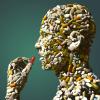Edited by DaveM, 31 October 2011 - 11:16 PM.

The Official Milk Thistle / Silymarin Thread
#31
Posted 31 October 2011 - 11:16 PM
#32
Posted 01 November 2011 - 08:08 AM
#33
Posted 01 November 2011 - 10:08 PM
#34
Posted 01 November 2011 - 10:14 PM
Milk thistle gave me heart palpitations!
How much were you taking?
#35
Posted 01 December 2011 - 07:04 AM
journal report:
http://onlinelibrary.wiley.com/doi/...
"... naturally-derived products like silibinin may be as effective as today's best treatments."
Other sources of information:
http://www.coloradocancerblogs.org/...
http://altmedicine.about.com/cs/her...
http://timesofindia.indiatimes.com/...
http://www.mayoclinic.com/health/si...
http://www.liversupport.com/milkthi...
http://en.wikipedia.org/wiki/Silibinin
Edited by JChief, 01 December 2011 - 07:04 AM.
#36
Posted 02 December 2011 - 01:18 AM
Is there any benefit to taking milk thistle only when you are ingesting something that can be harmful to your liver - i.e. alcohol, modafinil, etc. ?
Definitely yes, I take it when i eat stuff like fried food (cough) or liver unfriendly meds, and it works great. Should go for 0,5g ED but I'm out of regimen atm for financial reasons.
In one of the studies it was used to treat liver cirrhosis, It's serious stuff, that's very underrated.
#37
Posted 18 December 2011 - 01:36 PM
For those concerned as I am with BPH, rising PSA and focusing maintaining a good prostate health this might be worth considering.
E.g. see:
"Isosilybin A induces apoptosis in human prostate cancer cells via targeting Akt, NF-κB, and androgen receptor signaling"
http://www.ncbi.nlm....pubmed/20721970
"Targeting silibinin in the antiproliferative pathway"
http://www.ncbi.nlm....0%20%2020047507
Edited by albedo, 18 December 2011 - 01:40 PM.
#38
Posted 19 December 2011 - 05:54 AM
Depression and mood disorders
Comparison of Silybum marianum (L.) Gaertn. with fluoxetine in the treatment of Obsessive-Compulsive Disorder.
Prog Neuropsychopharmacol Biol Psychiatry. 2009.
Obsessive-Compulsive Disorder (OCD) is a common neuropsychiatric condition. Although a variety of pharmaceutical agents is available for the treatment of OCD, psychiatrists often find that many patients cannot tolerate the side effects of these medications; do not respond properly to the treatment; or the medications lose their effectiveness after a period of treatment. Herbal medicine can be a solution to some of these problems. In fact many herbs with psychotropic effects exist which can have fewer side effects. They can provide an alternative treatment or be used to enhance the effectiveness of conventional anti-obsessive and compulsive symptoms. Silybum marianum (L.) Gaertn. is a well-known medicinal plant with a long history of usage in Iran. This plant is reported to be safe on humans. Our objective in this study was to compare the efficacy of the extract of milk thistle with fluoxetine in the treatment of OCD. The study was an 8-week pilot double-blind randomized trial. Thirty five adult outpatients who met the DSM-IV-TR criteria for OCD based on the structured clinical interview participated in the trial. The minimum score of Yale-Brown Scale for OCD was 21 for all patients. In this double-blind and randomized trial, patients were randomly assigned to receive either capsule of the extract (600mg/day) or fluoxetine (30mg/day) for 8weeks. The results showed no significant difference between the extract and fluoxetine in the treatment of OCD. There was also no significant difference between the two groups in terms of observed side effects.
#39
Posted 19 December 2011 - 08:27 AM
There was also no significant difference between the two groups in terms of observed side effects.
That kind of worries me considering the laundry list of nastyness that SSRIs come with...
#40
Posted 19 December 2011 - 05:19 PM
what effect does milk thistle have on DHT?
Edited by hippocampus, 19 December 2011 - 05:24 PM.
#41
Posted 15 April 2012 - 03:03 PM
Edited by JChief, 15 April 2012 - 03:04 PM.
#42
Posted 15 April 2012 - 03:30 PM
*http://www.ncbi.nlm..../pubmed/9021345
Perhaps this herb could be taken just to be safe. I might cycle the Siliphos. This also appears to be a fertility aid for women trying to conceive, which is good for my situation.
Also, what I'd like to know more about is how milk thistle extract and vitex agnus castus compare in their activiation of the D2 receptor and if higher doses of silymarin might have a similar effect (reducing prolatin at higher doses) to vitex agnus castus/"chaste berry".
Edited by JChief, 15 April 2012 - 03:37 PM.
#43
Posted 28 August 2012 - 11:45 PM
#44
Posted 29 August 2012 - 04:35 PM
Sierra Sciences has identified Silymarin as a potent inducer of telomerase.
(HeLa scores of ~2.4% at the time of the patent filing.)
I've posted a link to the recently released world patent application on product B, in the product B thread:
http://www.longecity...251#entry531251
Summarizing the patent in 2 sentences: Silymarin / milk thistle is the most potent natural inducer of telomerase described in the patent, and makes up ~50% of product B by weight. Different preparations/extractions of silymarin vary widely w/ respect to their ability to activate telomerase.
This is indeed a very remarkable compound.
Edited by Louis, 29 August 2012 - 04:40 PM.
#45
Posted 03 September 2012 - 03:05 PM
#46
Posted 04 September 2012 - 11:20 PM
Did a little more digging myself in pubmed and found a study that seems to tie silymarin's low bioavailability when taken orally to its low solubility in water. And also how binding it with phosphatidylcholine can increase solubility in water, and thus bioavailabity, from around 40 μg/mL to 10 mg/mL.:
Mixed micelles loaded with silybin-polyene phosphatidylcholine complex improve drug solubility
Abstract
Aim:
To prepare a novel formulation of phosphatidylcholine (PC)-bile salts (BS)-mixed micelles (MMs) loaded with silybin (SLB)-PC complex for parenteral applications.
Methods:
SLB-PC-BS-MMs were prepared using the co-precipitation method. Differential scanning calorimetry (DSC) analysis was used to confirm the formation of the complex and several parameters were optimized to obtain a high quality formulation. The water-solubility, drug loading, particle size, zeta potential, morphology and in vivo properties of the SLB-PC-BS-MMs were determined.
Results:
The solubility of SLB in water was increased from 40.83±1.18 μg/mL to 10.14±0.36 mg/mL with a high drug loading (DL) of 14.43%±0.44% under optimized conditions. The SLB-PC-BS-MMs were observed by transmission electron microscopy (TEM) and scanning electron microscopy (SEM) and showed spherical shapes. The particle size and zeta potential, as measured by photon correlation spectroscopy (PCS), were about 30±4.8 nm and −39±5.0 mV, respectively. In vivo studies showed that incorporation of the SLB-PC complex into PC-BS-MMs led to a prolonged circulation time of the drug.
Conclusion:
This novel formulation appears to be a good candidate for drug substances that exhibit poor solubility for parenteral administration.
PMID: 21170082
Also see: Silybin-phosphatidylcholine complex. Monograph by Thorne Research (PMID: 20030465). All of which suggests to me that niner is spot on (as usual) and that Milk Thistle taken orally as a native extract may have very few interations (or positive effects) unless taken in very large quantities.
But a little more digging indicates that there are a few Milk Thistle formulations out there in the higher bioavailable silybin-phosphatidylcholine complex form. There's a Thorne Research product called Siliphos®. There's also a Vitacost Milk Thistle and Natural Wellness UltraThistle that feature Siliphos as well as Swanson Siliphos. Also stumbled across Enzymatic Therapy Super Milk Thistle which doesn't mention Siliphos by name but looks very similar in concept. Noticeably absent, btw, is any Sierra Sciences product.
Regarding Silymarin having a Prolactin boosting effect, PMID 19303749 documents that in female rats. [This study, btw, used a micronized form of silymarin they refer to as Bio-C]. That effect can indeed be nulled with Prolactin inhibiters as mentioned above. This site mentions a number of them complete with Pubmed citations. I might add the drug bromoergocryptine to the list as apparently one of the more powerful Prolactin inhibitors based on this abstract in Pubmed 570784. Which I infer from all the references to Pubmed 572921 (which I've never been able to locate and read myself), seems to put Mucuna pruriens on par with bromoergocryptine as one of the more powerful herbal prolactin inhibitors.
Howard
#47
Posted 07 September 2012 - 10:43 PM
I'm sure all you milk thistle fans will find this as fascinating as I did:
Sierra Sciences has identified Silymarin as a potent inducer of telomerase.
(HeLa scores of ~2.4% at the time of the patent filing.)
I've posted a link to the recently released world patent application on product B, in the product B thread:
http://www.longecity...251#entry531251
Summarizing the patent in 2 sentences: Silymarin / milk thistle is the most potent natural inducer of telomerase described in the patent, and makes up ~50% of product B by weight. Different preparations/extractions of silymarin vary widely w/ respect to their ability to activate telomerase.
This is indeed a very remarkable compound.
Thanks for the heads up and the interesting information!
In the other thread you calculate that the different silymarin preparations mentioned in the Product B patent have Hela scores between 0.375 and 2.4. The obvious question for me is: If I buy a Silymarin (Siliphos) product from Swanson or Vitacost, how effective will it be as a telomerase activator? How different are their extraction/preparation methods compared to those of Isagenix/ Sierra sciences? Maybe all we can do is guess. Probably someone in here can make a more educated guess than a newbe like me...
#48
Posted 13 March 2013 - 12:34 PM
I have a product containing:
Milk Thistle (fine powder) 200mg
Milk Thistle (extract 80%) 200mg
Lecithin 50mg
#49
Posted 13 March 2013 - 08:11 PM
Here's the graphic in the Beta-cyclodextrin/silymarin study that got me so interested:
Figure 7
Dissolution profiles of inclusion complexes of silymarin and β-cyclodextrin prepared using different methods. PM = Physical mixture, KN = kneading, CP = co-precipitation , SE = solvent evaporation
Simple physical mixture of silymarin and beta-cyclodextrin with a mortar and pestle increases water solubility from 20% to 100% and presumably dramatically increases bioavailability. Here's a similar article about using resveratrol and beta-cyclodextrin: Scientists consider cyclodextrins as resveratrol carriers. And a good toxicity study summary regarding use of beta-cyclodextrin as a food additive in the UK: Beta-Cyclodextrin (WHO Food Additives Series 32)... which seems to date back to 1994 but I'm not sure what happened in the UK approval process since then. As far as the US goes, I wasn't able to find any FDA approval but I did find this, where the FDA in 2005 seems to have made it a slight bit easier to get approval.
If anyone is interested in experimenting with this stuff, is seems to be available for research purposes on Amazon in pure and Hydroxypropyl forms.
Howard
#50
Posted 14 March 2013 - 10:26 AM
#51
Posted 14 May 2013 - 02:08 AM
They found a modest effect in the patent, like 200 base pairs after 4 months or so, very similar what you'd expect from the Astragalus inducers from all I've read. This is anecdotal evidence, I really would like to see a meaningful study with enough subject to draw a real conclusion. It's said that even Tai Chi or meditation can cause telomer length changes, so when it comes to individual cases these small changes when someone's taken supplements are somehow sketchy. In the patent it's also a very complex stack of about 20 compounds.I'm sure all you milk thistle fans will find this as fascinating as I did:
Sierra Sciences has identified Silymarin as a potent inducer of telomerase.
(HeLa scores of ~2.4% at the time of the patent filing.)
I've posted a link to the recently released world patent application on product B, in the product B thread:
http://www.longecity...251#entry531251
Summarizing the patent in 2 sentences: Silymarin / milk thistle is the most potent natural inducer of telomerase described in the patent, and makes up ~50% of product B by weight. Different preparations/extractions of silymarin vary widely w/ respect to their ability to activate telomerase.
This is indeed a very remarkable compound.
Thanks for the heads up and the interesting information!
In the other thread you calculate that the different silymarin preparations mentioned in the Product B patent have Hela scores between 0.375 and 2.4. The obvious question for me is: If I buy a Silymarin (Siliphos) product from Swanson or Vitacost, how effective will it be as a telomerase activator? How different are their extraction/preparation methods compared to those of Isagenix/ Sierra sciences? Maybe all we can do is guess. Probably someone in here can make a more educated guess than a newbe like me...
Edited by DorianGrey, 14 May 2013 - 02:38 AM.
#52
Posted 14 May 2013 - 02:23 AM
For prolactin, p5p, vitex, l dopa is good.
#53
Posted 14 May 2013 - 06:07 AM
is this good/bad
what are the pros and cons, seems very much undecided so far...
im 25, male, and healthy, if it increases telomere length, that is good, but does it come at a sexual drive/hormone loss?
#54
Posted 04 October 2013 - 02:14 PM
Somebody here must have supplemented enough silymarin/milk thistle by now to have formed their own subjective opinion on the matter from experience?
#55
Posted 04 October 2013 - 02:55 PM
Edited by nowayout, 04 October 2013 - 02:56 PM.
#56
Posted 04 October 2013 - 03:04 PM
#57
Posted 04 October 2013 - 03:55 PM
#58
Posted 05 October 2013 - 02:31 PM
250mg @ 80% TID on an empty stomach. Libido is fine. Blood tests have always shown normal prolactin.
#59
Posted 05 October 2013 - 02:56 PM
The bottle I have sitting here is one of Now Foods two Silymarin versions, the one I have contains 300 mg milk thistle extract, standardized to 80% silymarin flavonoids, from fruit and seeds, and apart from that also 700 mg turmeric. I already know I can handle turmeric well.
I am not really looking for an effect, except that of possibly helping my liver a little, since I take quite a few other supps right now.
#60
Posted 05 October 2013 - 05:29 PM
0 user(s) are reading this topic
0 members, 0 guests, 0 anonymous users
























































